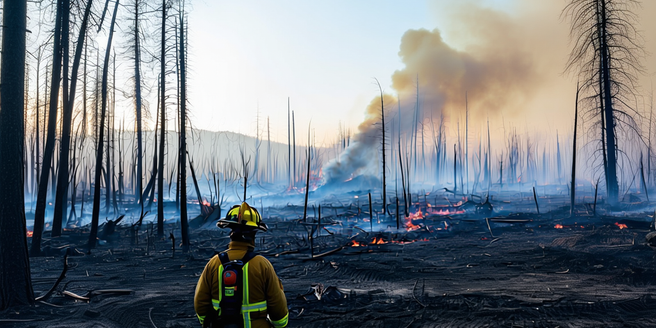
Understanding the Psychological Impact of Wildfires
Experiencing a wildfire can be traumatic, leaving lasting psychological impacts on affected individuals. Survivors often face anxiety, depression, and post-traumatic stress disorder (PTSD) as they cope with the loss of homes, displacement, and disruption of daily life. The fear of recurrence and the unpredictability of these natural disasters amplify feelings of helplessness and vulnerability. The psychological toll extends beyond those directly impacted, affecting neighboring communities and even first responders. Understanding these effects is essential for addressing the mental health needs of individuals who have endured such crises. Research underscores the importance of timely psychological intervention and community-based counseling to facilitate recovery. By acknowledging and addressing these mental health challenges, communities can foster resilience and promote healing in the aftermath of wildfires.
How Wildfires Trigger Emotional Stress
Wildfires evoke a myriad of emotional responses, including stress, grief, and a sense of loss. The threat to life and property creates an immediate sense of fear and uncertainty, exacerbating stress levels. As individuals navigate the aftermath, they may struggle with feelings of insecurity and hyper-vigilance. The loss of familiar surroundings and possessions further intensifies emotional distress, leading to a prolonged period of adjustment. Communities may also experience disrupted social networks, affecting collective morale and support systems. Understanding the emotional triggers associated with wildfires is vital for developing effective mental health strategies. Proactive measures, such as establishing emergency support centers and offering counseling services, play a crucial role in mitigating the emotional fallout of these disasters. By creating a supportive environment, affected individuals can gradually rebuild their sense of security and well-being.
Coping Strategies for Affected Communities
To effectively cope with the aftermath of wildfires, communities must adopt strategies focused on collective resilience and individual support. Providing access to mental health services is crucial for addressing immediate emotional distress and preventing long-term psychological issues. Community gatherings and support groups offer a platform for shared experiences and collective healing, fostering a sense of belonging and mutual understanding. Educating residents about stress management techniques, such as mindfulness and relaxation exercises, empowers them to take control of their emotional well-being. Encouraging open communication about fears and anxieties helps to normalize these feelings and reduce stigma. By promoting resilience-building activities and fostering a supportive community atmosphere, those affected by wildfires can better navigate the challenges they face and emerge stronger in the face of adversity.
The Role of Support Networks in Recovery
Support networks play a pivotal role in the recovery process following a wildfire, offering both emotional and practical assistance. Family, friends, and community organizations provide a crucial safety net for individuals, helping to alleviate feelings of isolation and despair. The presence of strong social ties can significantly improve mental health outcomes and accelerate the recovery journey. Community groups, religious organizations, and local support services can offer resources such as temporary housing, financial aid, and counseling support. By staying connected and leveraging these networks, individuals can rebuild their lives with a sense of confidence and assurance. Encouraging volunteerism and peer support within communities enhances the effectiveness of these networks, ensuring that no one has to navigate the aftermath of a wildfire alone. These connections foster resilience, enabling affected individuals to move forward with renewed hope.
Long-term Mental Health Implications
Wildfires can leave lasting effects on mental health, with some individuals experiencing prolonged symptoms of trauma, anxiety, and depression. The stress associated with displacement, loss of property, and rebuilding efforts can extend well beyond the immediate crisis. Addressing these long-term mental health implications requires sustained support and resources. Ensuring access to ongoing counseling and mental health services is critical for those struggling with persistent emotional challenges. Community-based interventions, including outreach programs and education about mental health awareness, can aid in destigmatizing these issues and encourage individuals to seek help. It is essential to implement policies that prioritize mental health care alongside physical recovery efforts. By acknowledging the enduring nature of these mental health impacts, communities can better equip themselves to support individuals on their journey to recovery and foster sustainable, healthy environments.
